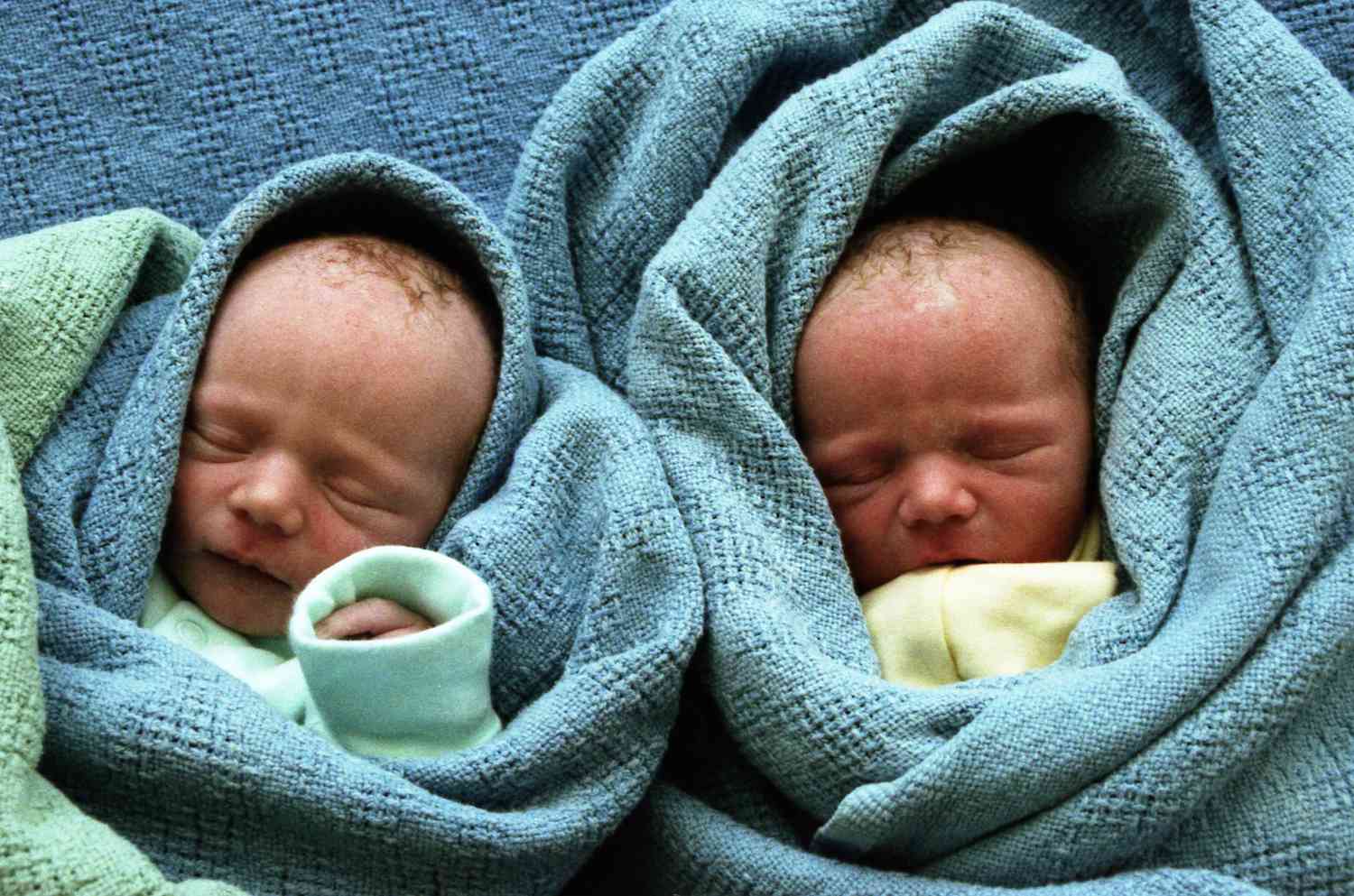
Rebecca Falnes
Senior Sonographer
One of the first things we check when you come in for your pregnancy scan is how many babies there are. Don’t worry too much, most of the time there’s just one. Occasionally, there might be a second (or third!) But we’ll go through everything you need to know about your chances of having twins and if you have a higher chance due to heredity. (Hint: your chances do not increase if twins run in the dad’s side of the family!)
First thing to know are the two types of twin pregnancies – fraternal and identical. We’ll break down each one and explain how we can sometimes tell the difference on ultrasound.
Fraternal Twins
Fraternal twins come from two different eggs and two different sperms (dizygotic). This is the type that is genetic and is also the most common. BUT, it’s only if twins run on the mom’s side of the family. Most of the time, only one egg is released during the menstrual cycle. If two eggs are released (either one from each ovary or two from the same ovary) then there is potential for two babies. Releasing two eggs in the same cycle is a genetic trait that can be passed on to women. As women get older, there is also a higher chance to release two eggs at the same time, even if twins don’t run in the family. The dad has nothing to do with how many eggs the mom releases, so even if there are a lot of twins on the dad’s side of the family, your odds don’t increase at all.
Fraternal twins are genetically as similar to each other as any siblings. They can be boy/girl, boy/boy, or girl/girl. They may have different eye colours and different hair. (Note that we cannot see this on ultrasound – please do not ask us if your baby has red hair, we don’t know! And yes, we get that question a lot.)
Fraternal twins always have their own placenta and their own gestational sac. This is called dichorionic-diamniotic (di-di.) This is the safest type of twin pregnancy because the twins have their own space and own food source so they won’t fight over nutrients or get tangled with each other.
Identical Twins
Identical twins come from the same egg and same sperm (monozygotic.) After fertilization, some unknown cause makes them split into two babies! This occurs randomly and everyone has the same chance of it happening to them. The chances are about 1 in 250, or 0.4%. Because they come from the same egg and sperm, they are genetically identical and will have all the same features – hair colour, eye colour, and sex.
If the fertilized egg splits very early, then each baby forms its own placenta and gestational sac. Just like fraternal twins, this is dichorionic-diamniotic (di-di) and is the safest type of twin pregnancy. If they split a couple days later (yes, just days) then they may share a placenta but each have their own gestational sac, which is called monochorionic-diamniotic (mono-di). If they split even later they may share both a placenta and a gestational sac, which is monochorionic-monoamniotic (mono-mono) and this type of pregnancy has the most risks associated with it. (Really late separation of the zygote results in conjoined twins because there isn’t enough time for them to fully separate, but we won’t delve into that as it’s very rare.)
In either of the later instances where the placenta is shared, there may be one twin that takes most of the nutrients for themselves, which means the other twin doesn’t get enough. Because of this possibility, you will get extra scans throughout your pregnancy to monitor the growth of each baby and make sure one isn’t falling behind the other. There is a procedure that can be done to help if this happens, but as any procedure comes with risks they won’t do it unless it becomes absolutely necessary. If the twins also share a gestational sac, there is an additional risk of their umbilical cords becoming tangled.
How to Tell the Difference
If your twins share a placenta or a gestational sac, then we can be 100% certain that they are identical. There is no other possibility.
If they each have their own placenta and gestational sac, then they could be fraternal OR identical. In those instances, we can only be 100% certain that they are fraternal if one is a girl and the other is a boy – those can’t be identical!
If they are both girls or both boys, they could still be either one. Some people still think that two placentas and two gestational sacs mean it has to be fraternal twins, but this is not true. Since fraternal twins are more common, statistically that is more likely, but a DNA test after birth would be the only way to know for sure (or waiting to see if they have different physical traits.)
Sometimes, if you have an early scan, we can tell by looking at your ovaries how many times you ovulated. If we see two babies and two ovulations, we can infer that they are likely fraternal. This isn’t 100%, but fraternal twins are more likely and seeing two ovulations is usually a good indication. And ovulation is only evident in the first trimester, so after 12 weeks we wouldn’t be able to confirm by checking your ovaries.
Hopefully this helps with your understanding of twin pregnancies! As always, our sonographers are more than happy to answer any questions you may have during your appointment with us.
Terminology
- mono one
- di two
- zygote a fertilized egg
- amnion gestational sac
- chorion placenta
Now to put them together:
- Monozygotic one egg and one sperm (identical)
- Dizygotic two eggs and two sperms (fraternal)
- Monoamniotic one gestational sac (always identical)
- Diamniotic two gestational sacs (either fraternal or identical)
- Monochorionic one placenta (always identical)
- Dichorionic two placentas (either fraternal or identical)
